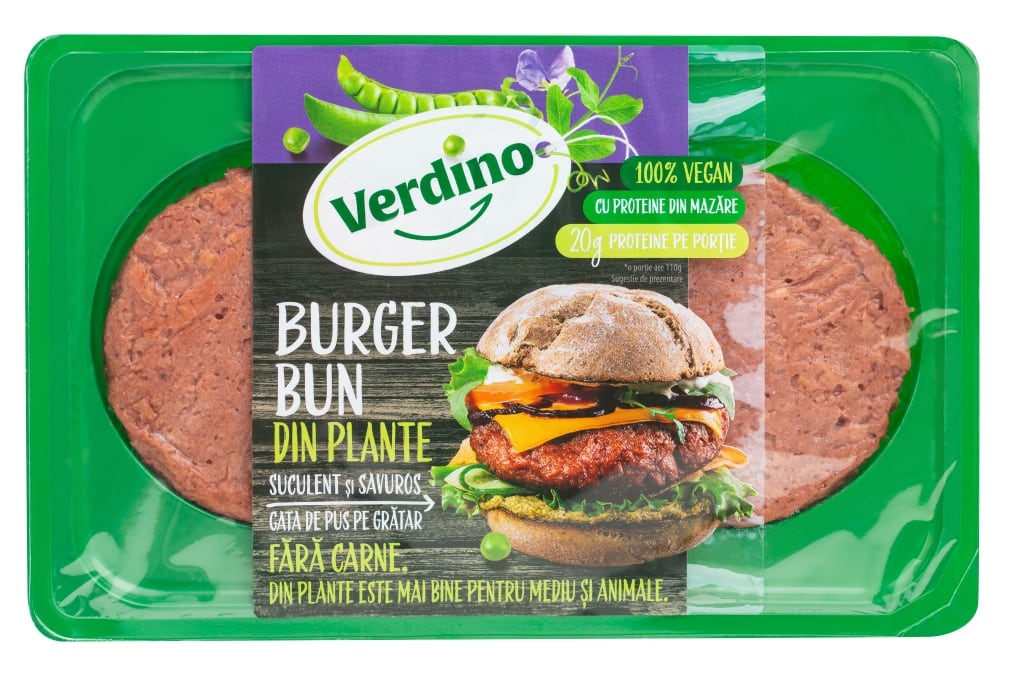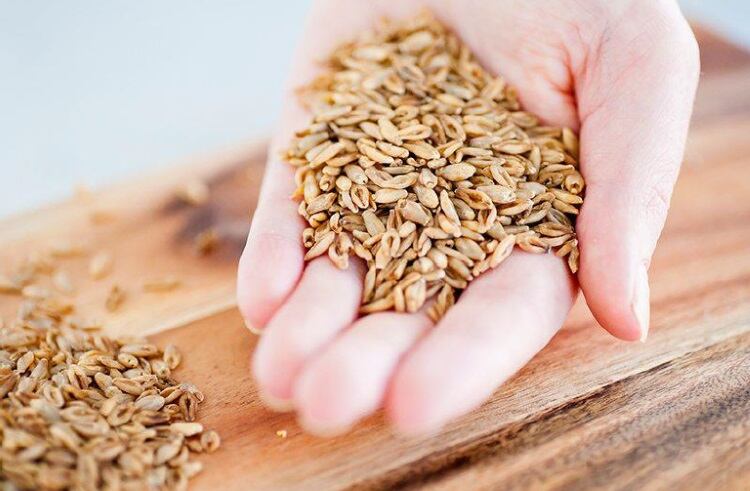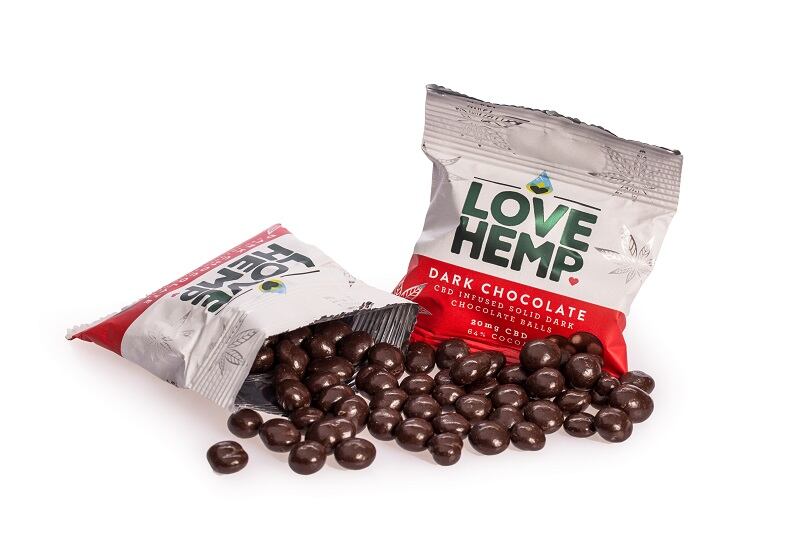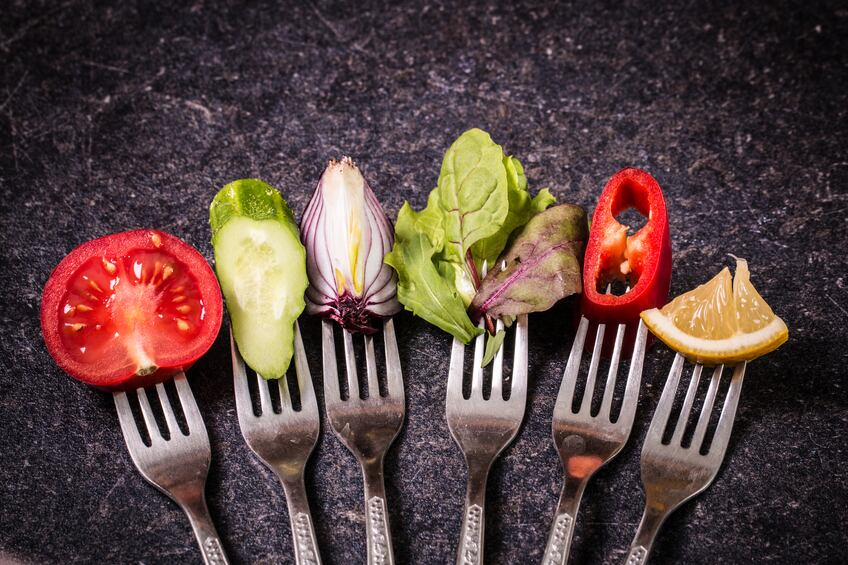Salconserv started production of plant-based foods in 2019. The company’s Verdino brand now boasts a range of over 30 plant-based products, which use pea protein to replace meat.
The innovation drive into a new category appears to be paying off. Within the space of a year, by the end of 2019, with 80 employees dedicated to the brand, Verdino was already generating a turnover of almost €2m.
Salconserv expects revenue to rapidly step-up. For 2020, management wants the brand to be generating sales of €4.7m. By 2021, the target of €27m in revenues has been set.
This might sound highly ambitions, but the company’s chief executive believes that Verdino is a company with the wind in its sales. “Verdino is the foundation for a completely new category of products and we are proud to say that the food of the future is also produced in Romania,” Răducanu said.
The right time and place
Indeed, Salconserv believes that its product innovation is aligned with global trends towards a more sustainable, plant-based diet.
The sustainability of plant-based products and concerns about the negative impact of meat on health underpin consumer interest and changes in consumption habits. According to forecasts from Euromonitor International, the global plant-based meat market was estimated at a value of US$12.1bn in 2019. This is projected to reach US$27.9 billion by 2025, with a compound annual growth rate of 15%.
The innovation behind Salconserv’s new brand responds to growing demand for products that ‘meet the sustainability criteria’ using ‘high-performance technologies’ and innovating to ‘obtain foods that taste similar to meat-based foods’. The brand’s ‘mission’ is defined as ‘healthy, quality and sustainable food’ and it aligns with the values of ‘no harm to the animals or to the environment’ for ‘zero impact’.
Based on pea protein, Salconserv has positioned Verdino to meet just this need. “Peas are considered the protein of the future because in the production of one kilogram of peas, 87% less water is consumed and 90% less CO2 is emitted than in the production of one kilogram of meat.”
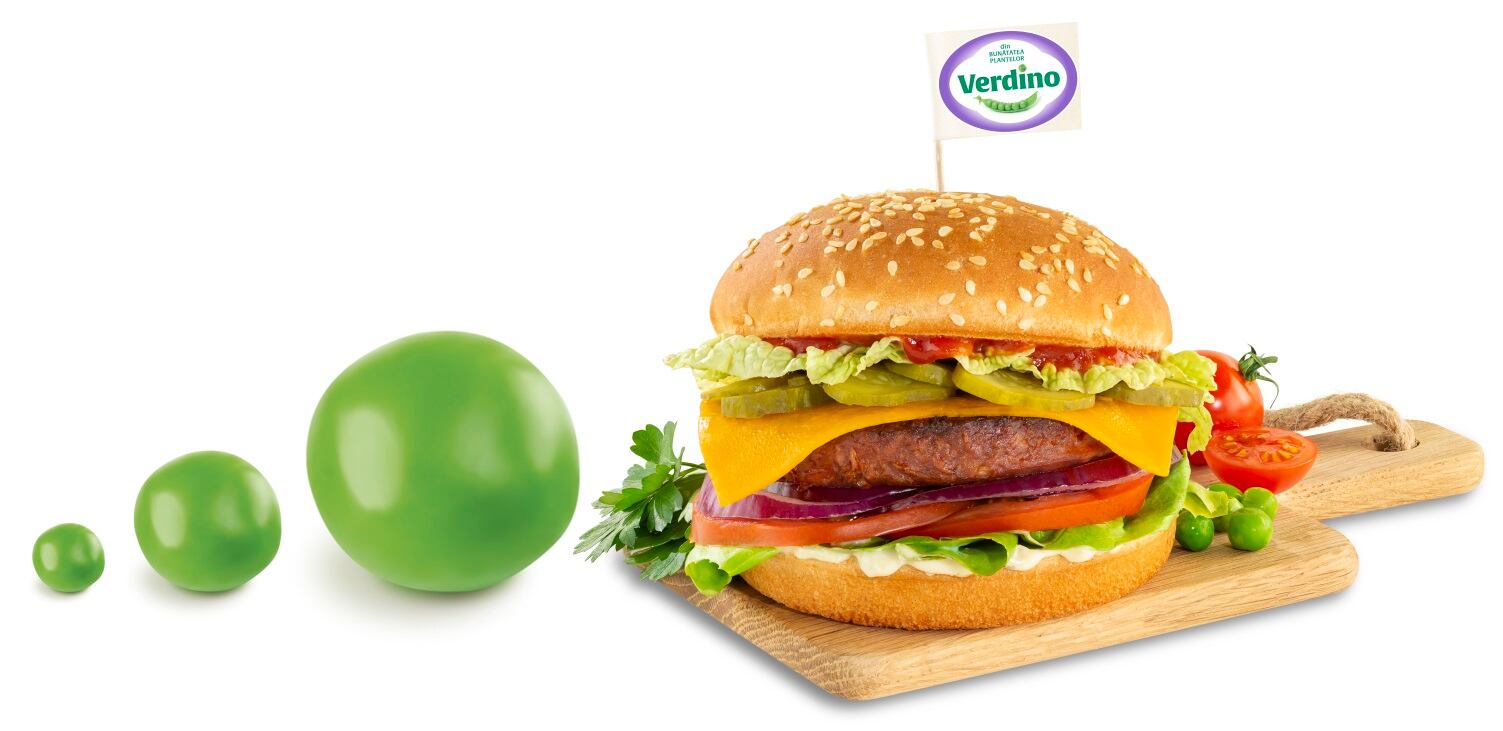
Global growth supporting sales ambitions
Salconserv’s first foray into the plant-based space was the launch of an alternative to fresh, minced meat. The company leveraged coconut oil instead of lard and pea protein instead of meat. This made Salconserv Food the first - and only - Romanian producer to offer a plant-based alternative to fresh, minced meat based on pea protein.
A focus on NPD has rapidly expanded the company’s plant-based offering. Targeting consumers who enjoy meat and dairy but want to cut consumption, Verdino products now include burgers, sausages, cevapcici, hot dogs, cold cuts, salami, mortadella and bacon as well as cheese alternative products. The company professes to offer the ‘same satisfaction’ to meat and cheese lovers, with a similar taste and texture.
As well as being free from meat and dairy, Verdino products are rich in fibre and proteins and are GMO-free, lactose-free, soy-free and vegan certified.
Verdino products are already listed in ‘almost all’ retail stores in Romania and the next step in Verdino’s journey is international expansion, Răducanu revealed.
Progress has already been made in growing a global presence, the chief executive continued. “We started the first exports with Verdino plant-based products this year. We have signed the first distribution contracts for several European countries, a distribution contract for the USA and we are in negotiations with several potential distributors for our products in other countries in Europe, but also in Canada and China.”
Răducanu said Salconserc is ‘open to find new partners worldwide to distribute our plant based Verdino products’.

